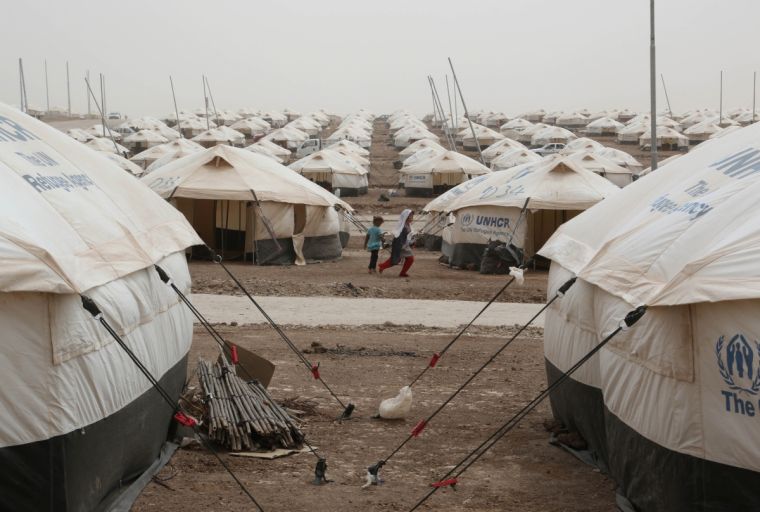UN appeals for $2.2bn to meet 'immense' needs of displaced Iraqis

The United Nations is appealing for $2.2bn to help meet the needs of some 5.2 million people who have been displaced by the conflict in Iraq.
According to latest figures from the UN, there are 2.8 million Iraqis in need of food assistance and around 800,000 people in urgent need of emergency shelter.
Across Iraq, 1.26 million people need some form of assistance to prepare for the approaching winter.
"The provision of winterisation packages, warm clothes, shoes, health services and food are all critical requirements," the UN said.
The funds will also be used to provide water sanitation and hygiene, education and protection of the people living in the camps.
Neill Wright, the UN's acting humanitarian coordinator for Iraq said the needs of the people are "immense".
"It's imperative we step up our efforts," he said.
"Although much has been done, much more is needed in the coming weeks to prevent additional, unnecessary suffering for many Iraqis.
"This effort requires all of us – the UN, nongovernmental organisations, civil society and the private sector – to work together. All of us have a role to play."
Aid to the Church in Need has expressed similar concerns about the plight of Iraqis in the face of the coming winter. Thousands are living in tents after fleeing from ISIS with little more than the clothes on their backs and temperatures are expected to fall below zero soon.
"There is an absolutely overwhelming need...people cannot be expected to survive in tents," ACN's John Pontifex told Christian Today.
In addition to lacking practical items like warm clothes and housing, he said they were in need of greater protection "to ensure that they don't fall to the mercy of extreme militants".











